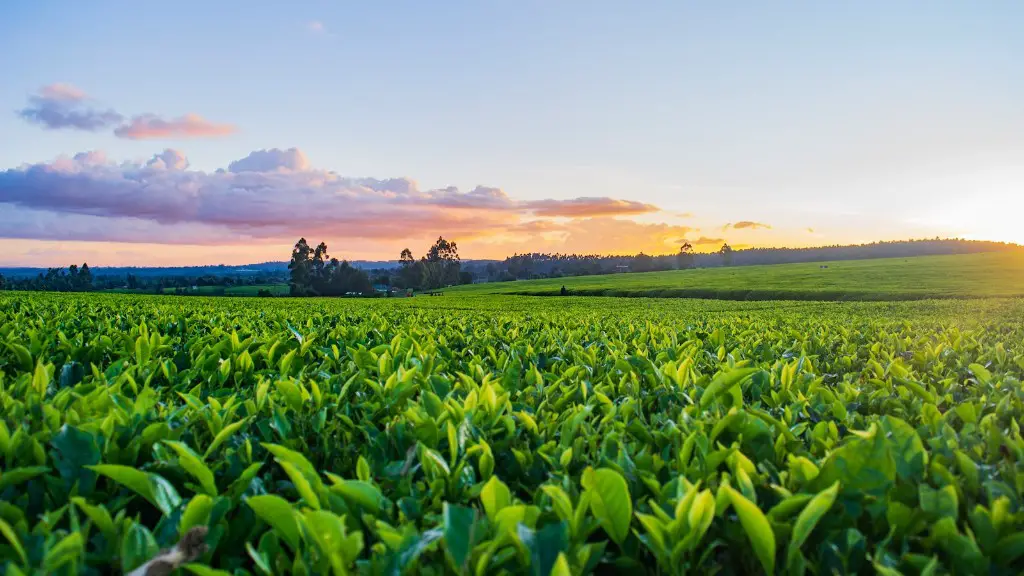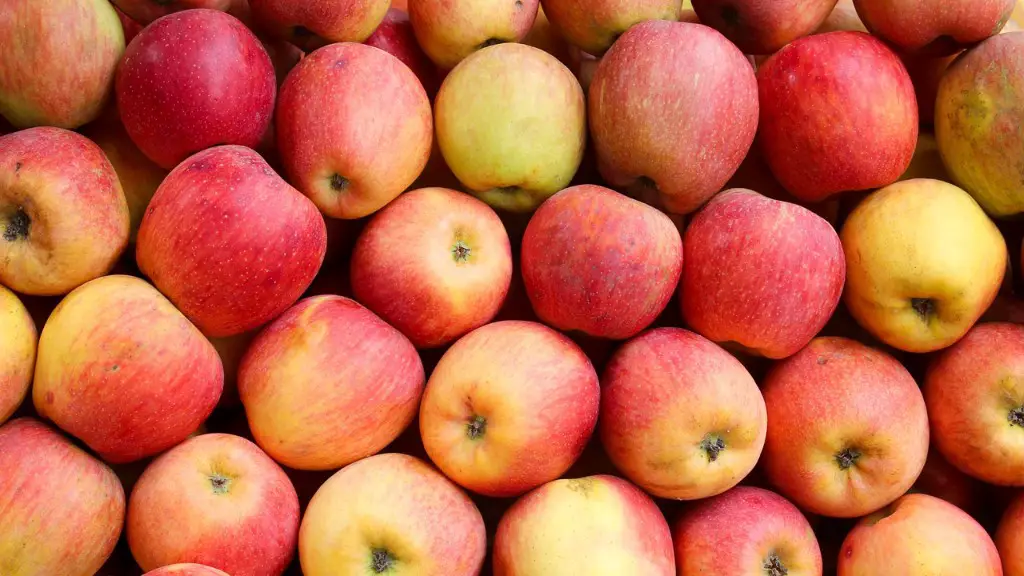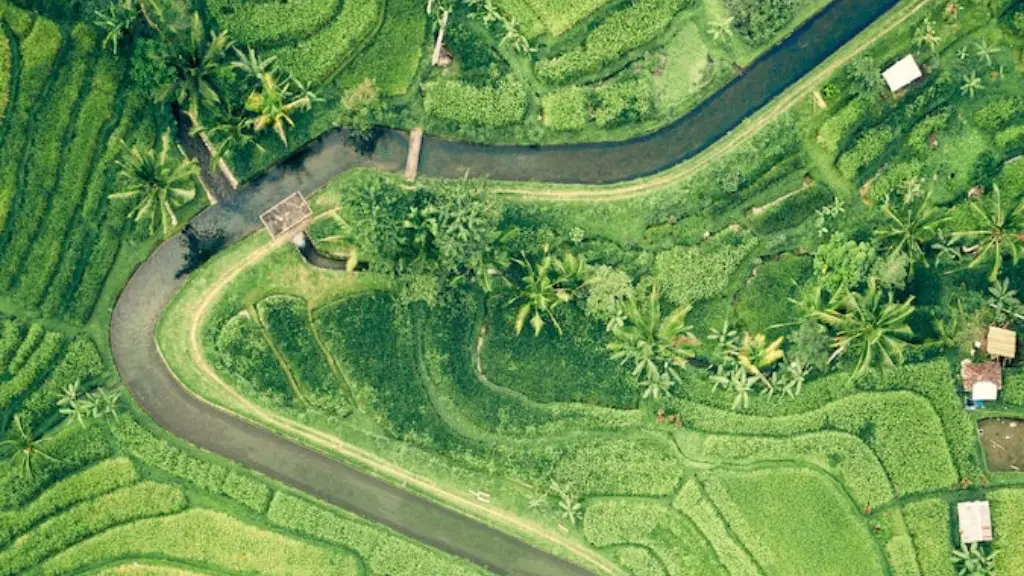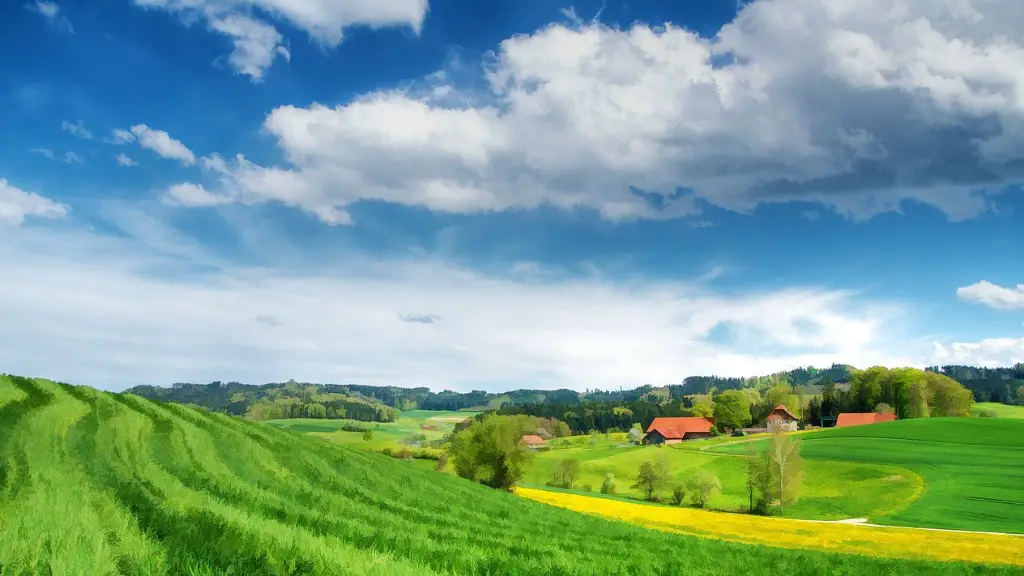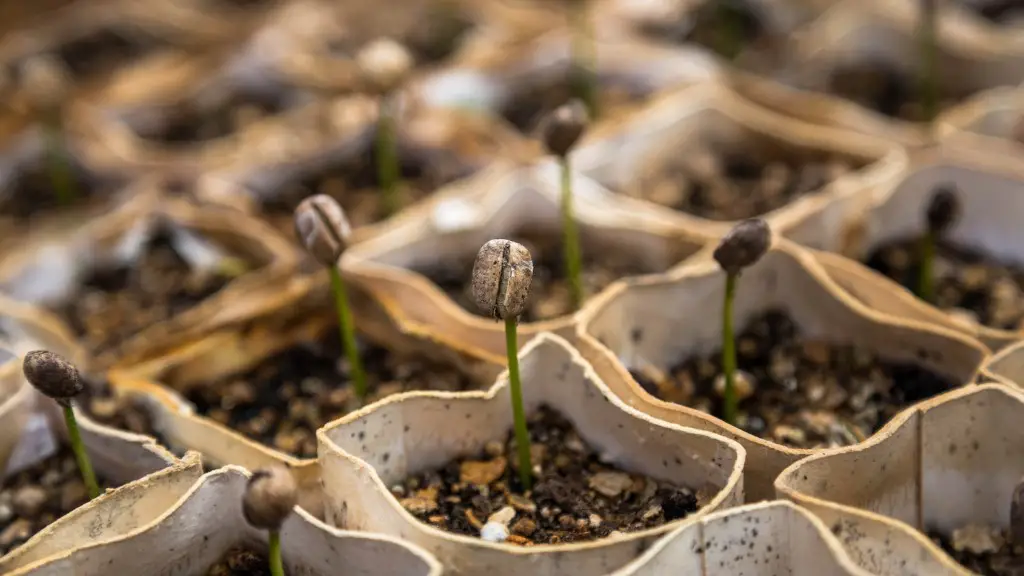Agriculture has been a major influence on human settlements for millennia. The ability to cultivate crops and raise livestock allowed for the development of permanent settlements, which in turn led to the rise of civilizations. Agriculture has also played a role in shaping the landscape, as it has often been a driving force behind deforestation and the damming of rivers.
The domestication of plants and animals led to the development of agriculture, which in turn had a profound impact on the way humans settled down and developed civilizations. Agriculture allowed for the growth of cities and the rise of civilizations. It also allowed for the growth of food surpluses, which allowed for the development of trade and commerce. Agriculture has had a profound impact on human history, and continues to do so today.
How did agriculture play a role in the settlement of humans?
Agriculture allowed for the domestication of plants and animals, which led to the development of stable food supplies. This, in turn, allowed for the growth of permanent settlements, and the eventual development of complex societies. Agriculture thus played a key role in the evolution of human civilization.
There is a clear need for more research on the health outcomes of farmers. While there are some studies that have looked at specific health outcomes, there is a lack of comprehensive research on the topic. This is a critical area of research, as farmers have an increased prevalence of many acute and chronic health conditions. Some of these conditions include cardiovascular and respiratory disease, arthritis, skin cancer, hearing loss, and amputations. Other health outcomes, such as stress and adverse reproductive outcomes, have been little studied in the agricultural workplace. This lack of research makes it difficult to develop interventions and policies that can improve the health of farmers.
What agricultural advancement led to the development of human settlements
The Neolithic Revolution was a huge turning point in human history, marking the transition from small, nomadic bands of hunter-gatherers to larger, agricultural settlements and early civilization. This period was also characterized by the development of new technologies and tools, including the first pottery and farming. The Neolithic Revolution had a profound impact on the way people live and interact with the world around them, and it continues to shape our world today.
Farming has changed the way people live in a number of ways. First, it has meant that people no longer need to travel to find food. Instead, they can grow crops or raise animals on nearby land. This has allowed people to settle in communities and build stronger, more permanent homes. Additionally, farming has allowed people to surround their settlements with walls for protection.
How did agriculture change the life of early humans?
Agriculture has been an important part of human history and has changed the way we live. It allowed us to settle down in one place and grow our own food. We no longer had to wander around looking for food. This settled lifestyle led to the development of civilizations.
The agricultural revolution was a time of great change for humans. It led to a more sedentary lifestyle and a dependence on the land for food. It also resulted in inequality, as some people had access to more land and resources than others. Additionally, the agricultural revolution led to a decline in nutrition, as people ate fewer fresh fruits and vegetables and more processed foods. Finally, the agricultural revolution also led to an increase in infectious diseases, as people came into close contact with domesticated animals.
What are three impacts of agriculture?
While the negative impacts of agriculture on the environment are significant, there are also some positive impacts that agriculture can have. For example, agriculture can trap greenhouse gases within crops and soils, or mitigate flood risks through the adoption of certain farming practices. While more needs to be done to address the negative impacts of agriculture, it is important to acknowledge the positive impacts as well.
The advent of agriculture was a pivotal moment in human history. For the first time, people were able to produce more food than they could eat, which allowed some people to focus on other pursuits. This period of change was crucial in the development of human civilization.
What factors caused the human settlements to expand
The river valleys were some of the first areas settled by humans due to the availability of water and fertile land. As trade, commerce, and manufacturing developed, human settlements became larger. This is because these activities require more people to be concentrated in one area.
The Agricultural Revolution was an important turning point in human history. It allowed for the domestication of plants and animals, which led to the growth of human settlements and the development of civilizations. The Agricultural Revolution also set the foundation for modern human life, as it allowed for the growth of food surpluses and the development of trade and commerce.
When did agriculture and human settlements start?
The ice age was a time of great change for the human species. Between 85000 and 10000 years ago, the modern Homo sapiens arose. This was a time of great climatic change, and the ice age would have had a significant impact on the human species. Agriculture came around 10000 years ago, and this would have been a major turning point in human history. The human settlement started around this time, and the ice age would have had a major impact on the human species.
Agriculture is vital to the overall health of a country’s economy for many reasons. First, agriculture provides food and raw materials for businesses and industry. Second, agricultural production supports a large number of jobs, both on the farm and in related industries. Finally, agriculture is an important source of tax revenue and foreign exchange earnings. In short, a thriving agricultural sector is essential for a strong and healthy economy.
How have agriculture and civilization changed human societies
Agriculture is one of the most important inventions of humankind. It has enabled people to grow all the food they need in one place, with a much smaller group of people. This has led to massive population growth, creating cities and trade. Agriculture has had a profound impact on the development of civilization.
The Agricultural Revolution was a period of time during which new crops and new methods of crop rotation were experimented with. These new farming techniques gave soil time to replenish nutrients, leading to stronger crops and better agricultural output. Advancements in irrigation and drainage further increased productivity.
What were the 3 major results of the Agricultural Revolution?
The Agricultural Revolution was a time of unprecedented increase in agricultural production in Britain. This was due to new agricultural practices such as crop rotation, selective breeding, and a more productive use of arable land. These innovations led to a more efficient and productive agriculture, which helped to support the growing population of Britain.
The Norfolk four-course rotation was one of the most important innovations of the Agricultural Revolution. It greatly increased crop and livestock yields by improving soil fertility and reducing fallow. The rotation consisted of four crops: rye, wheat, barley, and clover. Rye and wheat were grown in the first and second years, barley in the third year, and clover in the fourth year. The clover served as a cover crop and added nitrogen to the soil. The rotation also included a period of fallow, or resting, in which the land was left unplanted. This allowed the soil to recover its nutrients and improve its fertility. The four-course rotation was first developed in the Norfolk region of England in the early 1500s and quickly spread to other parts of Europe. It was an important factor in the Agricultural Revolution and the rise of modern agriculture.
Final Words
The Agricultural Revolution led to the rise of civilizations as people began to settle down and farm instead of roaming around looking for food. Agriculture allowed for the domestication of plants and animals, which led to the rise of civilizations. Agriculture allowed people to settle down and develop cities and states. Agriculture also allowed for the development of new technologies, like irrigation and crop rotation.
The introduction of agriculture allowed for permanent human settlements to form as people no longer needed to migrate in search of food. This led to the rise of civilizations and the growth of cities. Agriculture has also had a significant impact on the environment, as the clearing of land for farming has caused deforestation and soil erosion.
